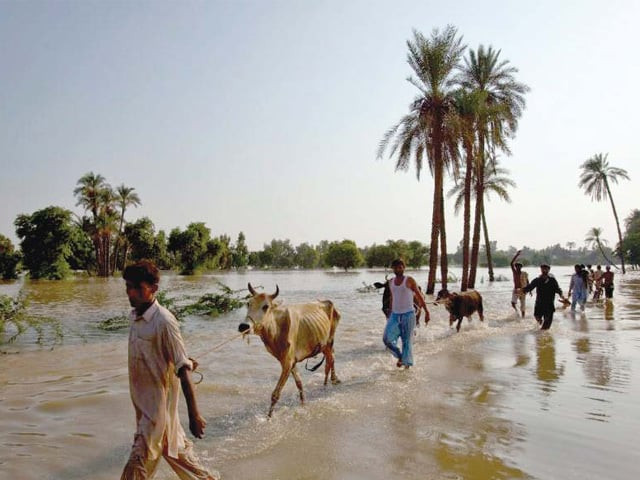Engro focuses on people residing close to its plants
Engro Foundation Director Jeevan Das speaks to The Express Tribune about Engro Corporation’s CSR arm.

Established about a year and a half ago, Engro Foundation has quickly initiated social development projects in different areas of Sindh. “Our primary focus remains on population residing in a three to five kilometre radius of our plants and installations,” explained Das who joined Engro in October 2009.
Engro Corporation businesses include fertiliser plants at Daharki, a power plant at Qadirpur, milk and juice plants in Sukkur, an ice cream plant in Sahiwal and a rice processing plant in Muridke. Engro Foundation has initiated CSR projects in adjoining areas of each of these installations.
The foundation has so far adopted 26 government primary schools, upgrading their infrastructure, providing books and training to teachers. It has set up mobile and static healthcare units, including an anti-snake venom centre in Daharki where 6,000 snake-bite victims were treated in 2010.
The foundation has also partnered with various local non-governmental organisations in health, education and disaster management projects. “We have many ongoing projects but since the floods, there has been a rush to address the needs of affected population,” said Das. He explained that as immediate effects of the deluge have subsided, focus has shifted from relief to rehabilitation.
Vaccinations for 100,000 animals
Engro Foundation has joined hands with the United States Agency for International Development (USAID) for a six-month rehabilitation project for flood-hit areas in Larkana and Dadu. The project is worth over Rs77 million and aims to vaccinate and treat 100,000 animals by May.
“Livestock in these areas are the most vulnerable to foot and mouth disease,” explained Das. “It is also a very contagious disease so we want to vaccinate as many animals as possible, free of charge,” he added.
The foundation has also started distributing complementary rations of multi-cut grass seeds (jowar), oat seeds and mineral mixtures with fertiliser bags to help preserve the health and productivity of livestock in flood-hit areas.
Recalling relief activities initiated by Engro, he highlighted that “our primary source of funding was our own employees and internal sources through which we raised over Rs13 million.”
Das added that relief work was carried out by many different companies, organisations and individuals, “but throughout this process livestock has largely remained neglected.” He added that this realisation provided the impetus for the Khushhal livestock programme initiated with the help of USAID. “One advantage for us is the availability of fertiliser, milk and food products that we can obtain from our own businesses.”
How it works
“Non-governmental organisations working on various social development projects in the country usually lack technical knowledge of healthcare, livestock and other fields relevant to rural population,” said Das, adding “the research base on the same subjects is also practically non-existent.”
He asserted that the foundation has been able to overcome this problem by tapping into the resource pool of Engro Corporation businesses. The corporation is an umbrella for seven different companies whose businesses range from fertilisers and chemicals to power and food.
“There are about a dozen members of our core team and all the other technical expertise that we generate from within come from the other businesses of Engro Corporation,” he said. “The chief executives of all the other businesses are members of the board of directors of Engro Foundation and that enables us to be on the same page about projects and to generate ideas for using our own resources as much as possible to work towards our goals,” he said.
Visibly excited about ongoing and upcoming projects, Das stressed, “if the management of any company is committed to social development it can really make the difference between a CSR programme that is sustainable and plain charity.”
Published in The Express Tribune, January 22nd, 2011.



















COMMENTS
Comments are moderated and generally will be posted if they are on-topic and not abusive.
For more information, please see our Comments FAQ